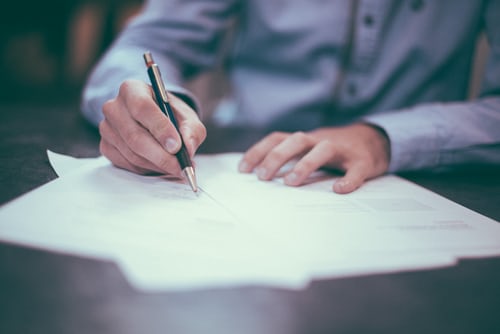Posted: Friday, 16 July 2021 @ 14:14
 What
is a Lasting Power of Attorney?
What
is a Lasting Power of Attorney?
A Lasting
Power of Attorney (LPA) is useful tool when people become incapable of running
their own financial affairs.
An LPA allows someone, of the donor’s choice, to
step in and take control of the donor’s finances.
Because of the
great power the LPA gives them, attorneys are often trusted friends or family
of the donor. However, where attorneys abuse this power, measures must be taken
to protect the donor. This is particularly important when the donor cannot
protect themselves or even complain about the way their attorney is acting.
LPAs represent a clear opportunity for people to conduct
financial abuse.
Adults aged 18
or over with the capacity to make decisions can make provision for the event
that sometime in the future they may lack capacity to make certain decisions.
This can be
done by giving another person Lasting Power of Attorney (LPA) - the authority
to act on their behalf or by making advance decisions to refuse medical
treatment.
People given
formal powers under LPA to make decisions on behalf of adults who lack capacity
are bound by the Mental Capacity Act and its Code of Practice. They have a
statutory responsibility to act within the limits of the powers given to them
always to act in the person's best interests
Adults who
lack capacity and do not have such formal arrangements and require significant
decisions to be made may be subject to a best interest meeting or the issue may
need to be taken to the Court of Protection.
The court may appoint a deputy to
act as decision maker or make a declaration about what is in the person's best
interests.
There are two
types of LPA: personal welfare and property and affairs.
LPAs are legal
documents and are only valid if completed on the statutory form
LPAs must be
signed by the donor
LPAs should
normally name people who should be informed when it is to be registered
LPAs must
contain a certificate completed by an independent third party
LPAs must name
the person (or persons) who is to act as attorney
LPAs must be
registered with Office of Public Guardian (OPG) before they can be used
If registered
some time ago and not used, the attorney should inform the OPG when they start
to act under it
LPAs may have
restrictions or conditions.
Why Do They Cause Problems?
LPAs can cause problems at two levels as it is very easy financial abuse over long period with the Property and Finance documents (without any effective scrutiny) and the Courts and police authorities are weak in the face of this abuse. Dealing with the police, you may just get lucky and in the face of evidence they will be intervene but that is not my experience. Dealing with the Courts you can have to be careful and disciplined with a Court application. Sadly from my experience judges can be indifferent in the face of fraud and any application must be focused and have clear evidence of fraud.